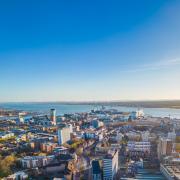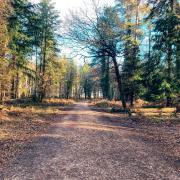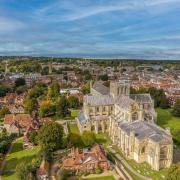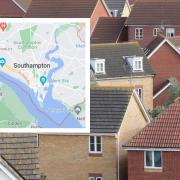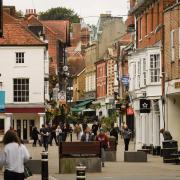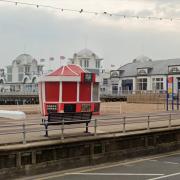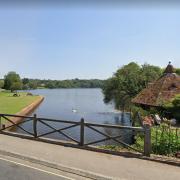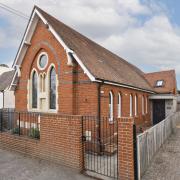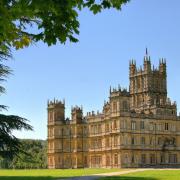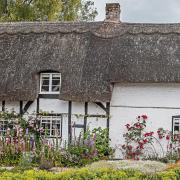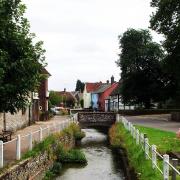A historic Hampshire market town, well-situated for commuters but close to some of the county's most beautiful countryside, Romsey is a much sought-after place to put down roots
The gorgeous mellow buildings, soaring Romanesque abbey and interesting little side streets make Romsey appear like something out of a film set.And it’s true that the historic market town has been a much-used location for film-makers and TV companies, including dramatisations of Ruth Rendell’s Inspector Wexford mysteries.But its apparent peace hides a turbulent history. The town’s abbey, believed by many to be England’s finest, was originally founded in 907 by nuns, but was burned by Vikings less than a century later when they sacked the town. It was re-established a few years later and rebuilt in the 12th century.Romsey’s population was halved by the Black Death in the 14th century and the number of nuns at the abbey was reduced to fewer than 20, while their community was finally suppressed by Henry VIII in 1539.But the town has always survived. It was granted its first charter by Henry I in 1240, allowing a weekly Sunday market and four-day fair in May. Today, every Tuesday and Friday, there are street markets in the Cornmarket, while the town hosts a Hampshire Farmers’ Market on the first Sunday of every other month, the next on June 6 in Alma Road car park. A knitted historyThe legacy of its woollen industry can still be seen in Romsey’s magnificent town centre architecture, much of it dating from the 17th century. It was then that King James I decreed that it could become a borough, giving it official permission to run local affairs. Her Majesty Queen Elizabeth II visited Romsey to mark the 400th anniversary of this momentous event.While the industrial revolution in the north of England robbed the town of its woollen industry, versatile Romsey residents took advantage of the pure waters of the River Test and developed papermaking and brewing to fill the gap.The town boasts many historic inns, a legacy of the days when turnpike roads meant there were many travellers passing through, before the railway arrived in the mid-19th century.Modern industry, the retention of the railway service and the town’s easy accessibility to motorways has seen Romsey grow as an attractive place to live.The town’s rich cultural life includes concerts and events at the Abbey as well as nearby Broadlands – the former home of Lord Mountbatten – and in the 1930s cinema, now the Plaza Theatre. Leisure activities abound at The Rapids, which has three pools and a gym, and local community organisations cover a huge variety of interests and activities.Whatever your age or interests, Romsey is well worth considering as a place to make your home. SchoolsHampshire Collegiate School in Romsey is a co-educational boarding, weekly boarding and day school for students from the age of three years to the end of sixth form. Several local state schools are highly-recommended. The Romsey School is a maths and computing specialist college.
Your commuteThe M27 and M3 are easily accessible for Southampton, Portsmouth, Winchester and Basingstoke. You will have to change at Southampton if you commute to Waterloo, but there are direct services to Salisbury, Cardiff, Southampton and Portsmouth.
Close byIt’s only nine miles to the shops and entertainment offered by Southampton, while the New Forest is on your doorstep. You can walk out of the town and into the neighbouring countryside, where there’s also plenty of opportunity for riding, and cycling.
Why I love life in RomseyRetired teacher Louise Lee has lived in Romsey with her husband Richard and family for almost 38 years.“We moved here because Richard was working in Southampton and we were looking for a house nearby,” she says. “We ended up staying here and bringing up our four children – Tom, Annie, Zoe and Dickon – in Romsey. The schools were superb, the amenities are lovely, we have open countryside nearby and there are always plenty of activities for children. As a dog-lover, I appreciate the very lovely dog-walking areas.“It is a very nice community with loads of groups from Amnesty to line-dancing, in fact whatever takes your fancy. The Norman abbey is supposed to be the finest example of Norman architecture in England and the town has lots of little nooks and crannies. It has an air of being its own place. People are friendly, I never walk into the town without bumping into lots of people I know.“As far as shopping is concerned, there is everything that you need for all age groups within the town, including a very good Waitrose, an absolutely superb ironmongers, a department store, good shoes and clothes shops and a lovely toy shop. There are lots of excellent hairdressers, tearooms, and even an old-fashioned sweetshop.“It has an enviable position, being so close to Eastleigh and the easy access from there to many other places, as well as a variety of countryside with woods, rivers and meadows.”
Check listBeautiful architectureWide range of independent shopsThriving community lifeGood schoolsClose to motorwaysTeashops, pubs and restaurants around



